The SAVE THE FROGS! Ghana Expedition was a huge success! In September 2016, our international team of American and Ghanaian staff and volunteers traveled throughout Ghana for three weeks, conducting a variety of educational programs and habitat restoration events. Some successes from the first week of the expedition include:
(1) Speaking to the entire incoming class of freshmen (nearly 500 students) at the Kwame Nkrumah University of Science & Technology (KNUST) Faculty of Renewable Natural Resources.
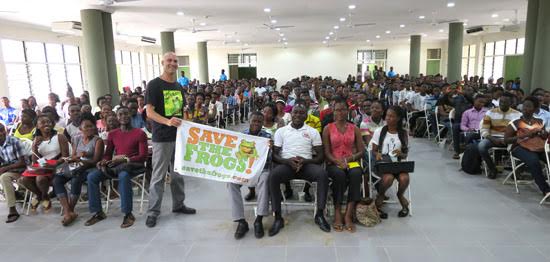
(2) Giving presentations to the students of the Kumasi Institute of Tropical Agriculture (30 students who have skills in beekeeping and mushroom farming, both of which can serve as alternative livelihoods for those who currently eat frogs or chop the forest illegally).
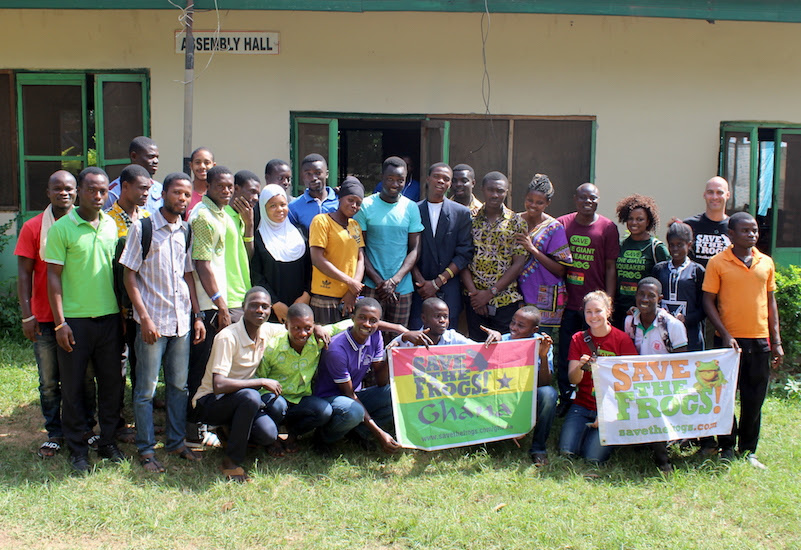
(3) Visiting three primary schools, directly reaching 940 enthusiastic students!
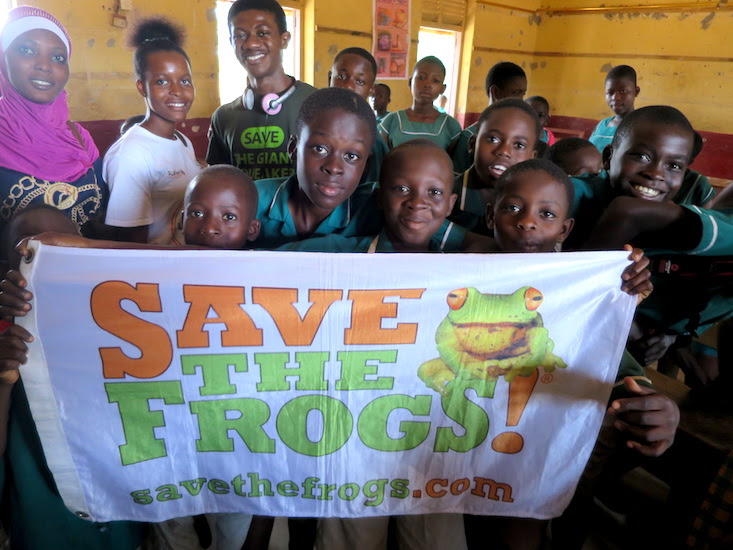
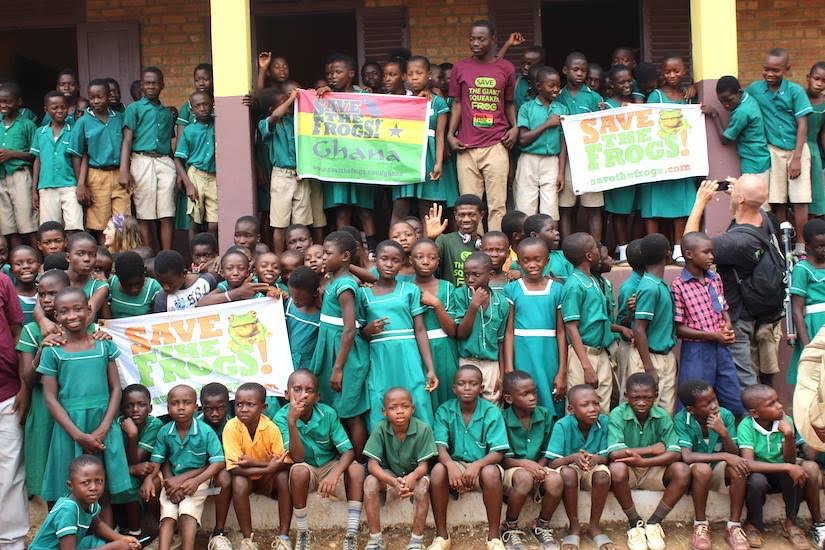
(4) Speaking about amphibian conservation on KNUST’s radio station (Focus FM 94.3) for 40 minutes.
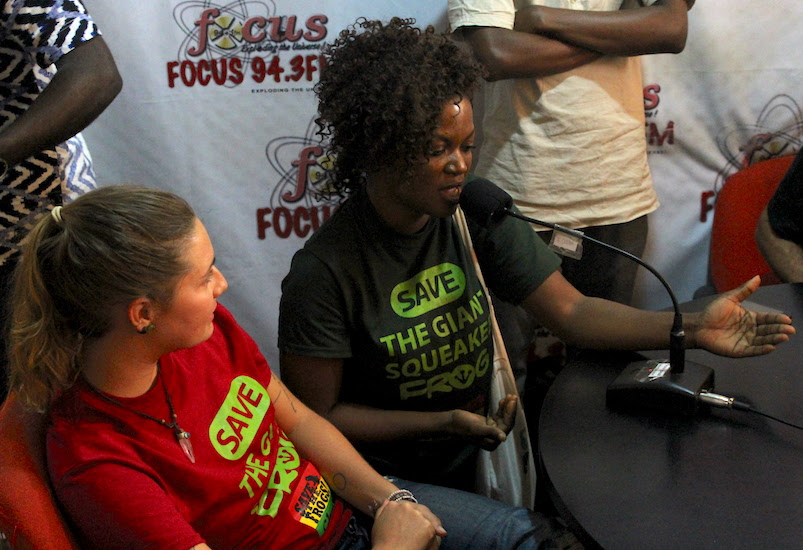
(5) Being interviewed by the university’s TV station (Tek TV); this footage and footage from our presentations will appear as a 20-minute segment throughout the region.
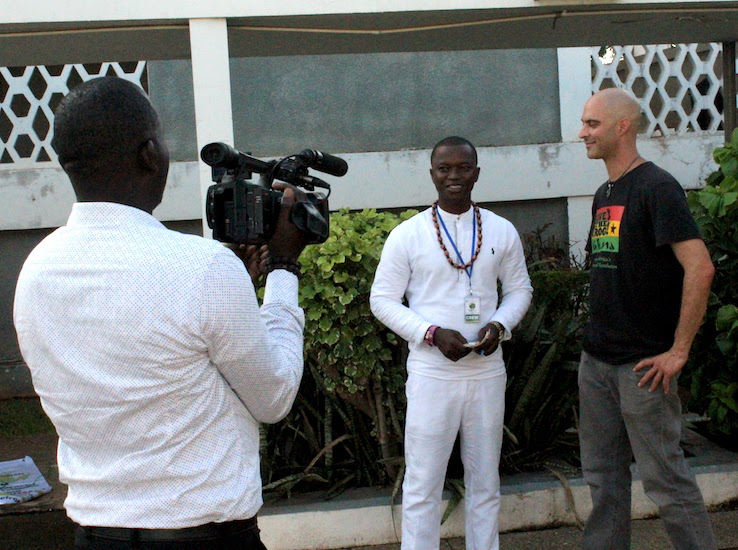
(6) Leading four field excursions to find amphibians! During these excursions we had university students join us so they could learn about amphibian species in Ghana as well as amphibian survey techniques. We waded thigh deep through the Wewe River swamps on the KNUST campus; we filled a mini-van with students and took them to the Bobiri Reserve (home of 24 amphibian species!); we visited the KNUST Botanic Gardens, site of the SAVE THE FROGS! Ghana KNUST’s Wewe River habitat restoration project; and we walked a few minutes down the road from our guest house to find frogs, scorpions, crabs and endangered Dwarf African Crocodiles. We found many amazing amphibian species, including:
Hyperolius concolor
Ptychadena longirostris
Ptychadena aequiplicata
Ptychadena bibroni
Afrixalus dorsalis
Phrynobatrachus latifrons
Phrynobatrachus plicatus
Leptopelis spiritusnoctis
Hoplobatrachus occipitalis
Amnirana albolabris
Amietophrynus regularis
Ptychadena longirostris
Ptychadena aequiplicata
Ptychadena bibroni
Afrixalus dorsalis
Phrynobatrachus latifrons
Phrynobatrachus plicatus
Leptopelis spiritusnoctis
Hoplobatrachus occipitalis
Amnirana albolabris
Amietophrynus regularis
Leptopelis spiritusnoctis
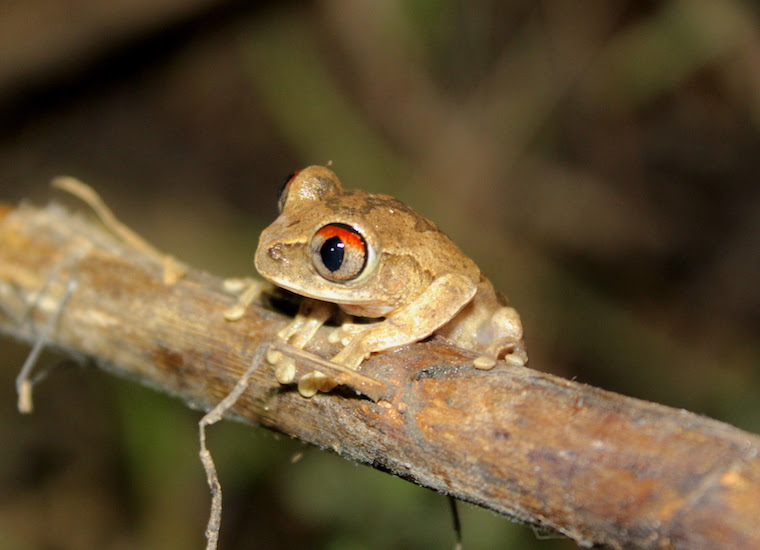
Afrixalus dorsalis
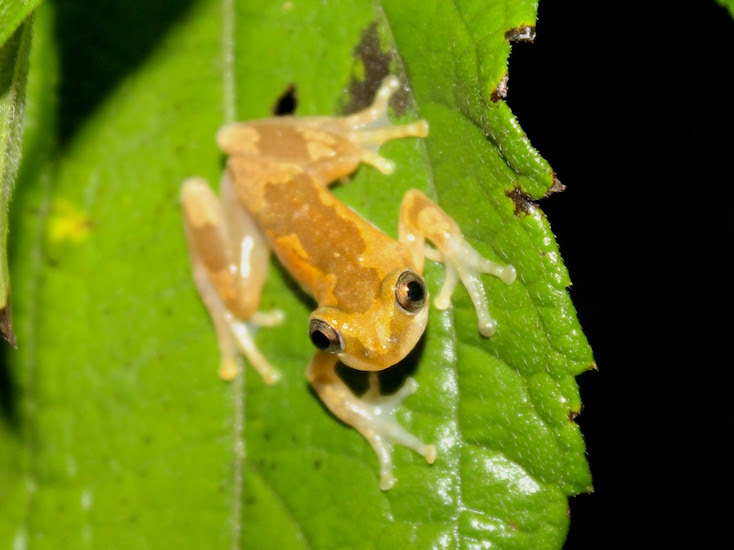
Hoplobatrachus occipitalis
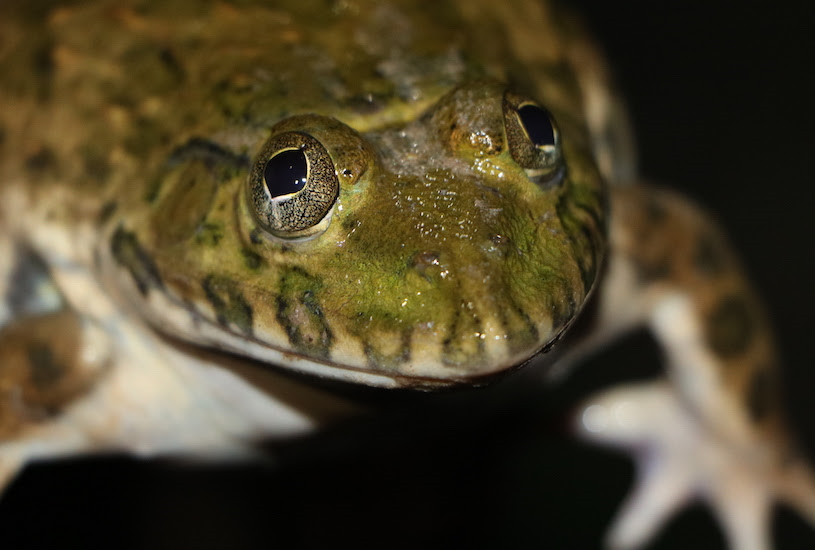
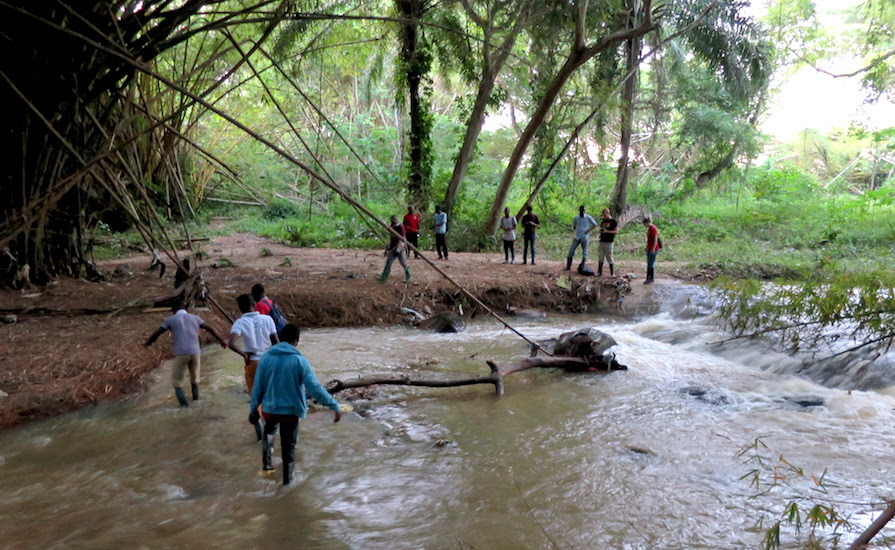
(7) Meeting with the SAVE THE FROGS! Ghana KNUST student chapter to establish future activities at the university and in the Kumasi region. We also met with professors and the Dean to discuss potential collaboration and exchange with universities abroad, in order to bring amphibian enthusiasts from other countries to Ghana, and even to send Ghanaians abroad so they can benefit from traveling to and learning about frog conservation in another country.
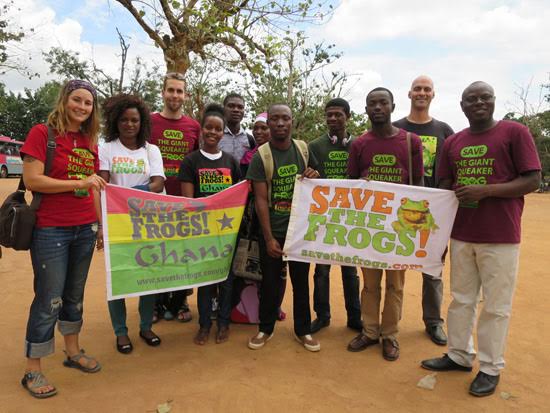
(8) Holding the inaugural SAVE THE FROGS! World Summit, a free full-day educational event attended by 75 KNUST undergraduates, featuring an international panel of amphibian experts, in order to empower and inspire students to care about and protect amphibians.
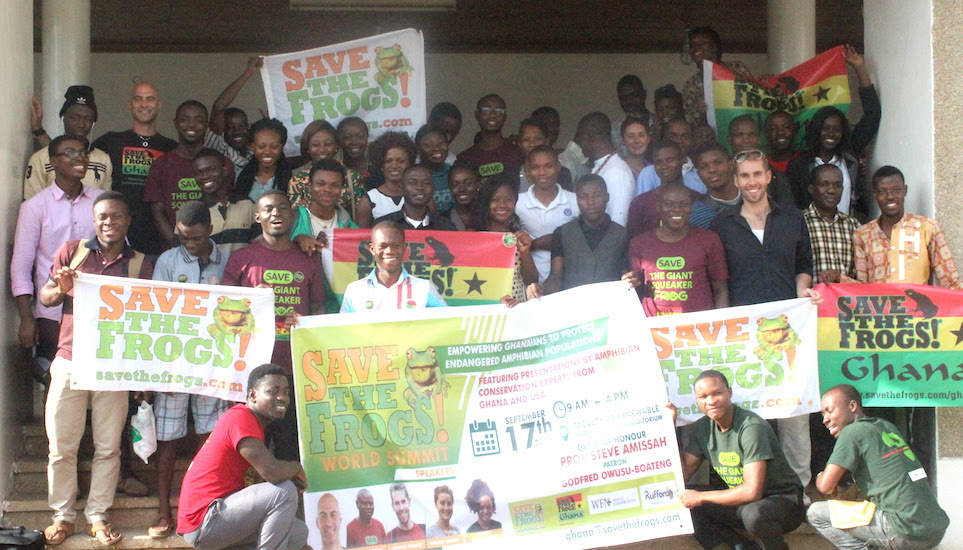
(9) Meeting with officials from Ghana’s Forestry Commission, managers of the forests that serve as habitat to the critically endangered Togo (Atewa) Slippery Frog and the Giant Squeaker Frog.
(10) Visiting the bushmeat market, the pesticide markets and the voodoo markets to document the extent of the legal and illegal trade in wildlife – including toads.
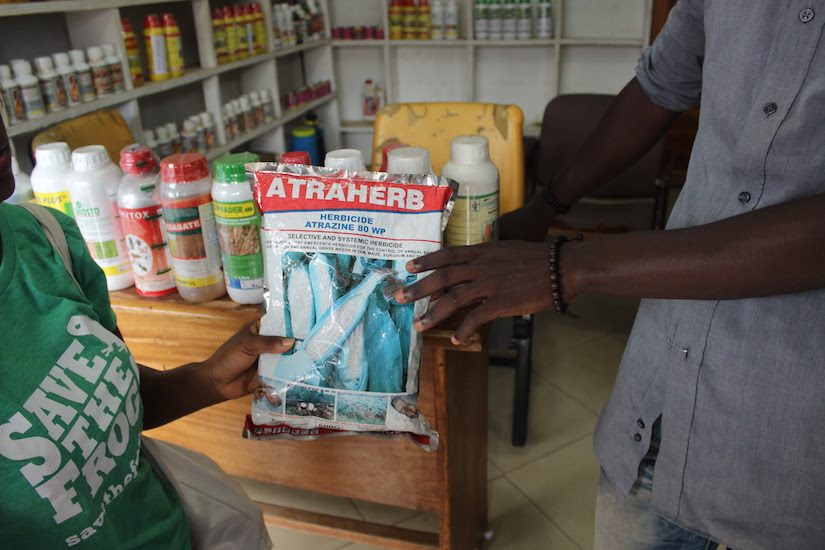
(11) We also found eight individuals of a frog species brand new to science! This species was discovered by a SAVE THE FROGS! Ghana team a few weeks before we arrived in the country.
We have also had an incredibly enjoyable and enlightening time and met many new friends, with whom we hope to be saving frogs for many years to come.
All of these activities could not have been completed without your generous support. From the SAVE THE FROGS! Expedition Team and everybody in Ghana who has benefited from this exceptionally beneficial Expedition, thank you!
“I’ve just come across your project summary and then downloaded your report from your initial Rufford Foundation grant. It is inspirational stuff. I really hope that the action that you are stimulating will be in time for this very precious amphibian. I just wanted to let you know how impressed I was, and I hope all goes very well.
Best wishes, Julian Branscombe, Orkney, United Kingdom”
Best wishes, Julian Branscombe, Orkney, United Kingdom”


